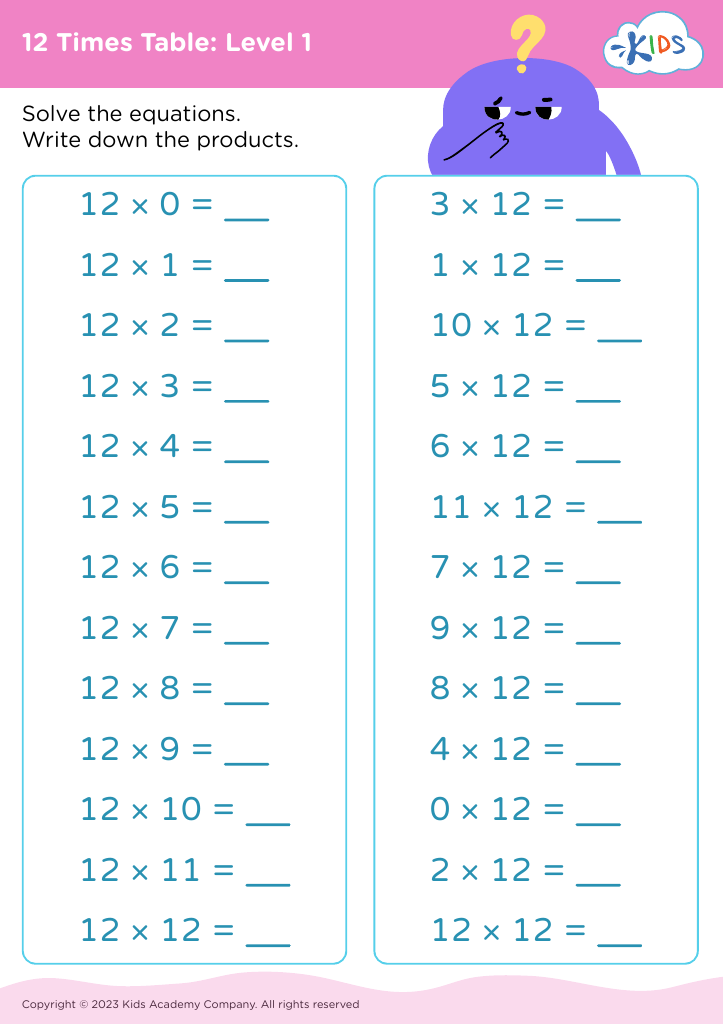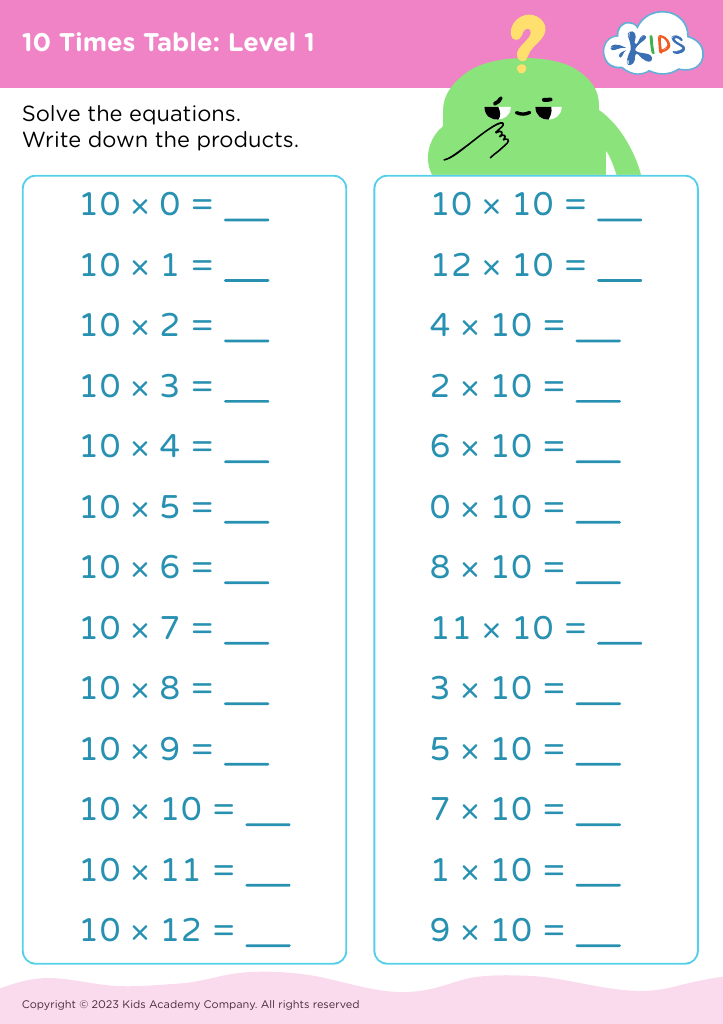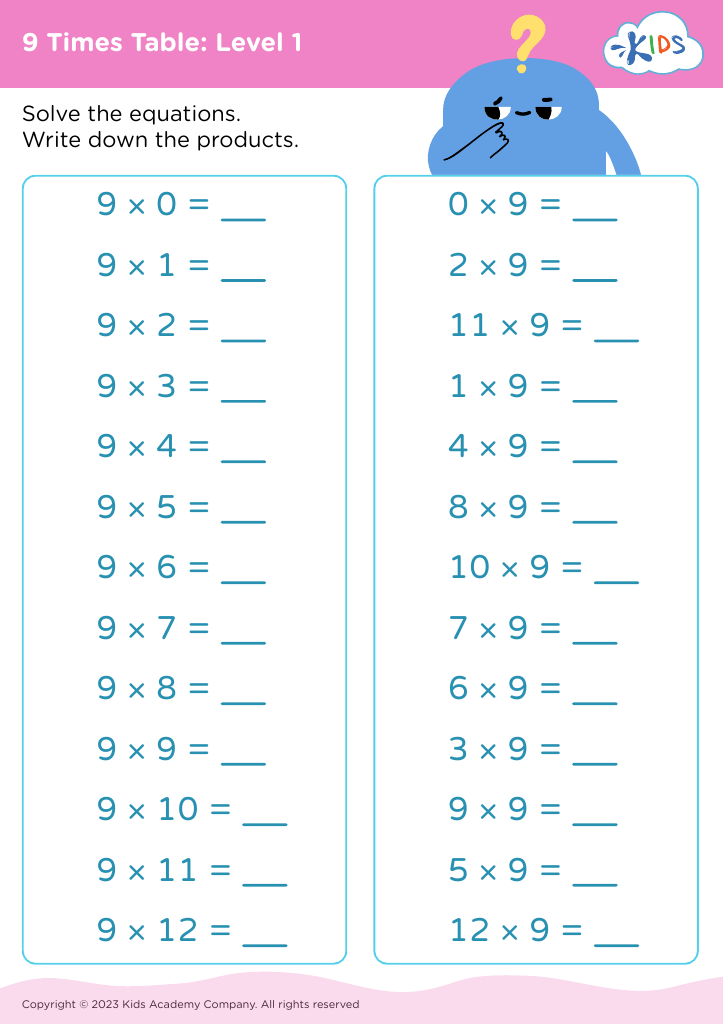Understanding patterns Easy Basic Times Tables up to 12 Worksheets for Ages 5-9
3 filtered results
-
From - To
Explore our "Understanding Patterns: Easy Basic Times Tables up to 12 Worksheets" designed for children ages 5-9. These engaging worksheets help young learners grasp multiplication concepts through recognizable patterns, enhancing their fluency in times tables. Children will discover repetitive sequences and connections that make learning fun and intuitive. Each worksheet features colorful visuals and interactive exercises tailored to captivate and motivate students while building their confidence in math. Perfect for both classroom use and home practice, these resources support foundational math skills and encourage a positive attitude toward learning. Dive into the world of patterns and watch young minds soar!
Understanding patterns in basic times tables up to 12 is crucial for children aged 5-9 for several reasons. First, it lays a strong mathematical foundation. Grasping multiplication not only helps in mastering basic arithmetic but also equips students with the skills to tackle more complex math concepts later on. Recognizing patterns, such as doubling or the relationship between addition and multiplication, helps children see connections among numbers, fostering critical thinking.
Furthermore, learning times tables aids in improving mental math skills, which are essential for everyday problem-solving. When children are confident in their multiplication facts, they can focus on higher-order thinking rather than getting bogged down by basic calculations.
Moreover, understanding multiplication patterns can boost a child’s self-esteem and enjoyment of math. When they see progress in their abilities, their confidence increases, making them more engaged and motivated learners.
For parents and teachers, facilitating this understanding means creating an environment where mathematical concepts are not intimidating and where learning is fun. Engaging children through games or real-life examples can foster a positive attitude towards mathematics, ensuring they develop essential skills for future academic success and everyday life applications.


















